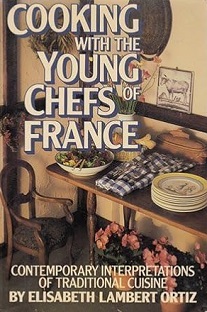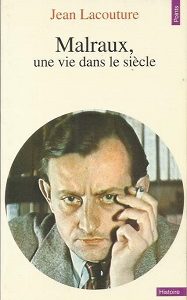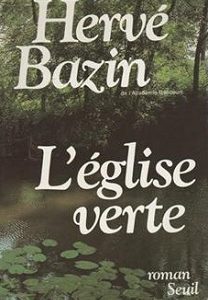- Home
- >
- Langue étrangère
- >
- Cooking with the young chefs of France
Elisabeth Lambert Ortiz
Cooking with the young chefs of France
Elisabeth Lambert-Ortiz was a British writer who, to a great extent, popularized Mexican and South American – and Jamaican – cooking in the United States. She loved to travel and as she traveled through France she met with the up and coming chefs who have taken the traditional recipes of France and given them a fresh, new spin. It has excellent adaptations of Cassoulet and Fisherman’s Stew. Not necessarily for the new cook, this cookbook can be equally challenging and delicious. Great combination!
Vous aimerez aussi
Malraux, une vie dans le siècle
Malraux a-t-il agi pour trouver dans l’action la source de son inspiration ? A-t-il écrit parce que l’action ne lui donnait ni la réponse à une certaine exigence d’absolu, ni l’accomplissement que cherchent les conquérants? Sa vie et son oeuvre restent profondément liées : vie construite comme une oeuvre, oeuvre pantelante comme une vie. Cette biographie retrace l’histoire d’un homme qui, à force de vouloir « transformer en conscience la plus large expérience possible », a vécu plus totalement son temps qu’aucun de ses contemporains. Ainsi, cette « vie dans le siècle » peut-elle être vue comme une vie du siècle lui-même.
Earthly powers
En Anglais – Anthony Burgess, author of A Clockwork Orange, is regarded as one of the most original and daring writers in the English language. His work is illuminated by a dazzling imagination, by a gift for character and plot, by a talent for surprise. In Earthly Powers Burgess created his masterpiece. At its center are two twentieth-century men who represent different kinds of power—Kenneth Toomey, eminent novelist, a man who has outlived his contemporaries to survive into honored, bitter, luxurious old age as a celebrity of dubious notoriety; and Don Carlo Campanati, a man of God, eventually beloved Pope, who rises through the Vatican as a shrewd manipulator to become the architect of church revolution and a candidate for sainthood. Through the lives of these two modern men Burgess explores the very essence of power. As each pursues his career—one to sainthood, one to wealthy exile—their relationship becomes the heart of a narrative that incorporates almost everyone of fame and distinction in the social, literary, and political life of America and Europe. This astonishing company is joined together by the art of a great novelist into an explosive and entertaining tour de force that will captivate fans of sweeping historic fiction.
L’église verte
Dans un village de France, on découvre un homme qui vient de nulle part : un homme sans nom, sans famille, sans passé, ou, du moins, se prétendant tel. Il semble avoir vécu un certain temps caché au cœur de la forêt, cette « église verte « , ultime refuge pour ceux qui veulent fuir leurs semblables… Ou eux-mêmes. Quel est son secret ? Hymne vibrant à la nature – dont Hervé Bazin, obstiné campagnard, parle mieux que personne, en connaisseur et en poète – L'Eglise verte nous interroge : en fin de compte, qu'est-ce qu'un homme ? Un état civil ? Un animal civilisé ? Un être obligatoirement social ? Classés, fichés, bureaucratisés, sommes-nous encore libres différents, solitaires, vraiment nous-mêmes ?
Nostradamus – Historien et prophète
Fin d'une civilisation, la Peur de l'Occident, Un monde qui meurt, autant de titres qui, depuis peu, fleurissent chez les libraires et dans la presse. Cette fois, un traducteur sérieux fait parler un vrai prophète et, paradoxalement, un véritable historien : Nostradamus. Grâce à un travail acharné et à une méthode rigoureuse, où le rationnel l'emporte toujours sur le jugement personnel et l'imagination, Jean-Charles de Fontbrune extirpe des quatrains de Nostradamus…







